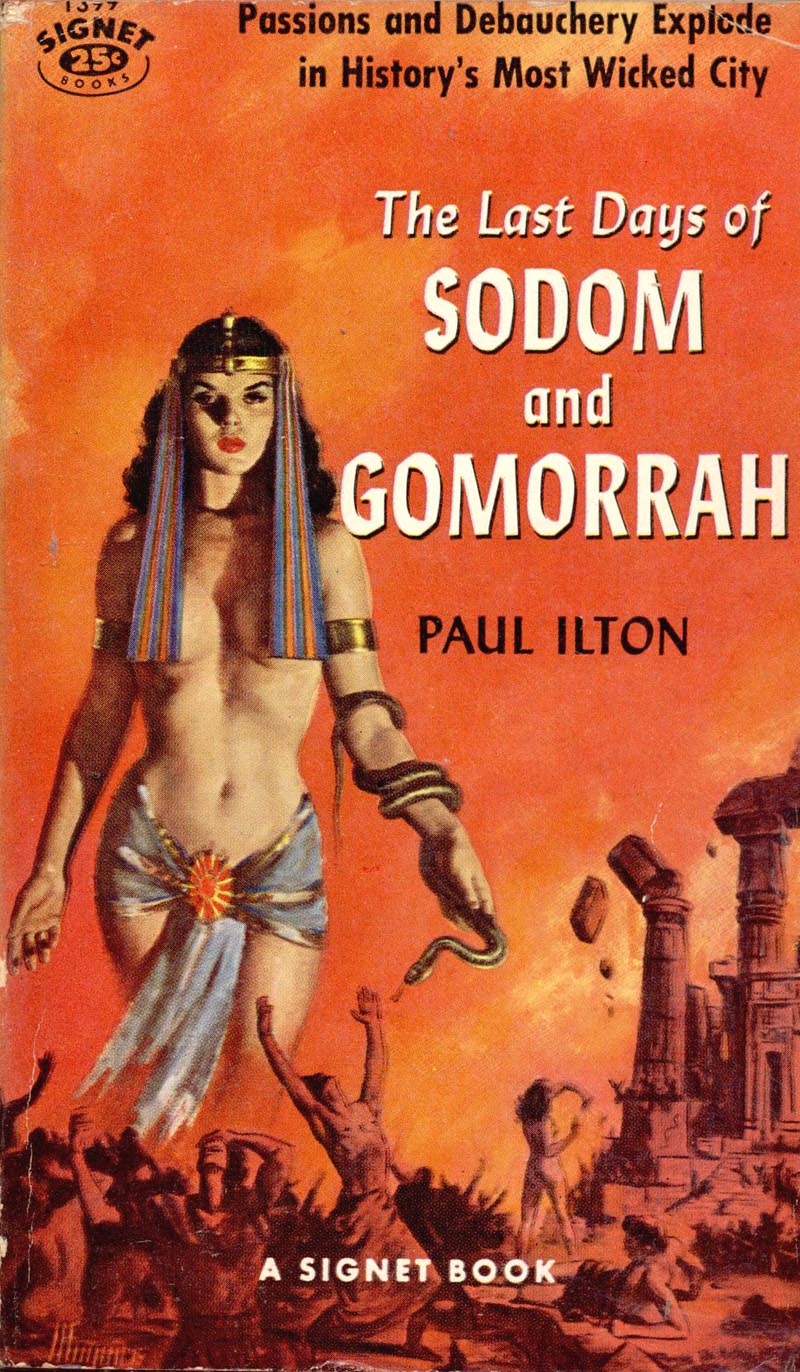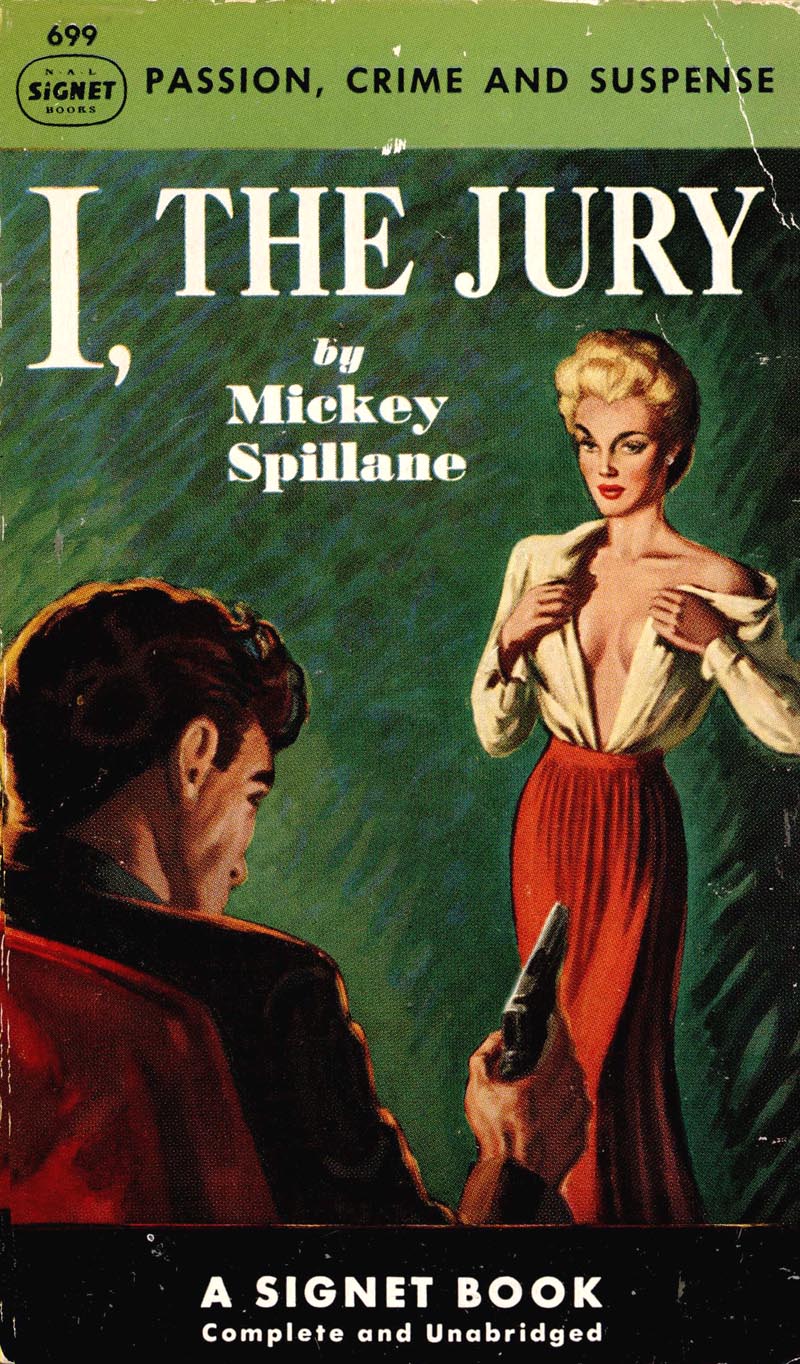Jacket illustrations, by and large, are a mélange of sex and violence.

A sort of jargon has arisen to distinguish plain sexy covers from "situation sex" (implied rather than overt) and from the few "down-sexed" or "un-sexed" covers. Some manage to squeeze both sex and sadism into the same picture.

The demands of the machine have led the paper-bound publisher to rely on the sure-fire salability of sex and sadism - and that involves him with the problem of censorship.
Retailers agree with publishers that for quick-quantity sale, the best book can be sold by its cover. "The worse the titles are the more they'll sell. Just what the censors object to is the kind of books the public is looking for. That's the way people are, and the only thing you can do is give them what they want."

"Decent literature" groups in scores of communities visit retailers to persuade them to clean up their racks, usually with the implied threat of boycott. Chief among these groups is the National Organization for Decent Literature, which publishes a list of disapproved books and a manual of instruction for local chapters.
The decent-literature campaign itself demonstrates that the paper-bounds have stimulated a new awareness of books in the mass market.
Books that have been on sale in hard covers for several years are coming under organized attack for the first time. In Brooklyn, decent-literature groups sought to ban, among others, three three William Faulkner titles (Sanctuary, Soldier's Pay, and The Wild Palms).

In Cleveland the titles that ran into the most trouble were Freud's General Introduction to Psychoanalysis, The Golden Ass of Apuleius, Somerset Maugham's Cakes and Ale...

... Lucy Freeman's story of a psychoanalysis, Fight against Fear, and John Steinbeck's The Wayward Bus.

In Denver an independent distributor pulled thirty-seven titles out of circulation, ranging from Sexual Feelings in Married Men and Women and Here Is My Body to Zola's Nana.

In defense, paper-bound publishers, besides crying "freedom of the press," point to what they call "bookish" accomplishments such as the New American Library's Mentor non-fiction line and its New World Writing series. Pocket Books has brought to market titles like Thomas Mann's Buddenbrooks, Immortal Poems of the English Language, and A Tale of Two Cities. Some of these issues, including also the English Penguin books... are more trade books than like ordinary paper-bounds.

Their distribution is more specialized and centers, for the most part, around colleges and what N.A. L.'s Weybright calls "more sophisticated communities."

But these form a relatively small and unsubstantial part of paper-bound publishing. The bread and butter is still the big, fast seller. New American library is a good example of this. Its Mickey Spillane titles last year sold more than six million copies, which, Fortune estimates, accounted for about a sixth of its total Signet volume. They are all sex and sadism.

Weybright, who prides himself on N.A.L.'s bookishness, becomes impatient when Spillane is mentioned and thinks perhaps too much attention is being devoted to him. "The Spillane books," says Weybright, "are a unique form of 'Americana,' a new kind of folklore, and therefore come within the ken of N.A.L.'s slogan, 'Good Reading for the Millions.' I won't apologize for Spillane."
* Accompanying this week's excerpts from the Fortune article are a broad sampling of mid-century paperback cover scans generously provided by one of my contacts on Flickr, UK Vintage. Many thanks Uilke!









Post a Comment